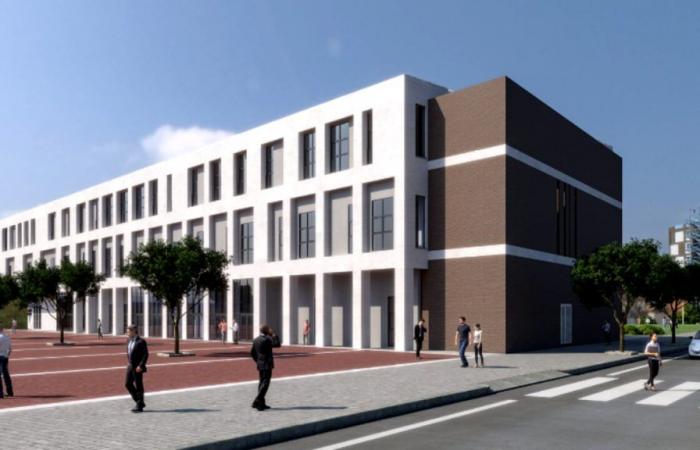The inauguration ceremony of the construction site took place this morning for the construction of the building intended to house the headquarters of the Psychology Department, classrooms, teaching laboratories and offices of the Campus Administration. The structure constitutes the completion of the university campus built in the former sugar factory area.
“We are happy – Rector Giovanni Molari intervenes – to have given a new home to Psychology, an achievement which is the result of an exemplary synergy with the municipal administration. I thank the mayor for the trust he places in the University as an indispensable element of development of the territory. It is thanks to far-sighted policies like these that our Multicampus – a national unicum of which we are proud – can become increasingly stronger, solid and attractive. We are confident that we will soon be able to find the resources to complete this work promptly”.
WATCH THE VIDEO
“It is a project – comments the Mayor Enzo Lattuca – in which we believe a lot and which strengthens the role that the University has now played for thirty years in Cesena: it was the autumn of 1989, when, even in the face of an important economic commitment confirmed in the following years, the challenge of designing the first university presence in the city was taken up. Today, the start of this new construction site, which will give us the new headquarters of the Department of Psychology, represents the third stage of a journey started with. the construction of the University of Engineering and Architecture in via dell’Università 50 and continued with an investment by the Municipality of 7 million euros and with the transfer, by the Institution, of the surface rights of the area on which it is the student residence has already been built”.
The building will host teaching spaces, laboratories, front office administrative offices and studios and will be attended by approximately 2,000 people including teachers, researchers, students and technical-administrative staff. The works inaugurated today will lead to the construction of a building with a surface area of 9,750 square metres.
The structure will be part of the Campus, located in a context of environmental value, in front of the Savio river park. The overall intervention was made possible thanks to the urban recovery plan (Pru), promoted over the last twenty years by the Municipality of Cesena together with the Ministry of Infrastructure and Transport (MIT), in which the University of Bologna participated through a program agreement signed in 1999 with the then Ministry of Education, University and Research (Miur) and with the Municipality of Cesena itself.
The new building, designed mainly by the technical office of the University of Bologna, will conform to the architectural language expressed by the detailed plan and will be characterized by the use of exposed bricks on the lower level, with specific outcroppings on the upper floors, which will be covered with stoneware slabs to underline its importance and uniqueness compared to the other buildings in the context. It will be spread over three floors to which an underground garage for employees will be added (on the front of Piazza Sciascia and on the corner between Piazza Sciascia and Via Vico) and will contain spaces intended for teaching and research of the Psychology Department as well as areas intended for the Administration of the Campus. It will house the student secretariat and the archive, which are today located in Palazzo Urbinati.
The entire structure will be green as in the executive project system choices have been made that aim to reduce energy consumption and maximize the use of clean energy sources, thus limiting the environmental impact of the intervention both during the construction and construction phases. usage. The building will be heated using the heat distributed via the urban heating network while the summer air conditioning system will be based on the use of highly efficient compression refrigeration units which will also provide a contribution to winter heating thanks to their reversible use in pump heat. To reduce the temperature of the hot water distributed in the rooms and increase the energy efficiency of the heating system, the large classrooms will be heated using a radiant floor system. The use of an intelligent regulation system coupled with air handling units serving the most crowded rooms will make it possible to limit energy consumption connected to ventilation thanks to the network of presence and temperature sensors distributed throughout the building which they will activate forced ventilation only in the rooms used and which will allow you to take advantage of the free cooling of the internal rooms, avoiding the activation of the refrigeration units every time the thermo-hygrometric conditions of the external air allow it.
The system solutions adopted and the choices made on the casing elements will ensure optimal internal conditions in terms of thermo-hygrometric comfort and air quality.






